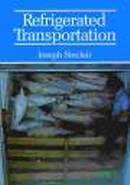
Change is a process, not an event
Change and Transformation
(within my own experience)
by Joe Sinclair

There is a misjudged tendency these days to treat these two words as having identical meanings. In fact, there is a considerable difference between them, although many people disagree as to the precise difference. To my mind, however, the difference, though sometimes subtle, is plain enough.
If I look back on my adolescence, to a time when I began my political awakening with a study of Marxism and dialectical materialism, I recall the distinction that was made between quantitative and qualitative change. This was introduced as a pseudo-scientific way to explain the inevitability of the “socialist revolution” and to describe in historical and sociological language how the “Workers of the World” would achieve their “escape from economic bondage”.
An example was often given of water turning to steam. The water gradually heating and then boiling was described as quantitative change, since there was no actual change in the chemical composition of the water during this process, merely in its property of temperature. Ultimately, however, the boiling water would turn to steam. This was regarded as an example of qualitative change: the steam having a totally different property than the heated water. Another example was provided by the gradual change in size of a caterpillar and its eventual metamorphosis via chrysalis into butterfly.

"A butterfly is a transformation, not a better caterpillar"
It seems to me that rather than using the politically outmoded and somewhat clumsy alternative adjectives for change, it is more appropriate to describe one as “change” and the other as “transformation”. Change, then, would be an alteration in an existing condition; that is, something that affects the present or immediate past. Transformation, in contrast, would be something that alters the future. One might be described as an historical reality; the other as a future condition.
My somewhat prolonged period of immersion into the politics of change and transformation persisted through adolescence, two years of military service, and three years of university education that, in itself, provided an excellent example of the metamorphosis described above. The change in my personal commitment to revolutionary politics went through subtle gradations of which I was mostly unaware. Although I never lost the belief in the essential justice and fairness represented by the need to ensure an "escape from economic bondage", I ultimately recognised that change had to begin with myself.
It is perhaps not without significance that when the first issue of Nurturing Potential was produced in 2002 we chose as an appropriate frontispiece aphorism the words of J.K. Galbraith: "Given a choice between changing and proving that it is not necessary, most people get busy with the proof." We have continued to maintain that as a salutary warning. But we have always maintained that the case for personal transformation is best summed up in the injunction: "Change yourself: transform your world".
A series of accidents had led me to my first encounter with the world of New Age and holistic spirituality. From the 1980s through the 1990s, this was to be the defining interest of my life that replaced the earlier political involvement. It started with the Co-Counselling movement whose philosophy was perfectly summed up by Rose Evison and Richard Horobin in their "Manual of Theory and Practice" entitled How to Change Yourself & Your World. They maintained that "co-counselling identifies distress and patterned behaviour as the major elements which interfere with people changing, growing, developing. [Co-counselling] provides ways of minimising distress and breaking up patterned behaviour, so that people have their full range of skills available to them."
I have never been content, in my life, merely to participate in any activity that interested me. I have always felt it necessary to satisfy a need to contribute more than a simple presence. Thus, in my earlier political involvement, I became a press-card-holding correspondent for the Challenge newspaper that bore to the Young Communist League the same relationship that the Daily Worker bore to the Communist Party of Great Britain. Now, with my new-found New-Age "religion" I did more than simply acquire the membership qualification for the London Co-Counselling Community, I became an instructor at an evening institute at the behest of my own trainer James Nichol, who found himself unable to fulfil a lecturing commitment and recommended that I be offered the job in his place.
This marked the beginning of a new caterpillar series of changes for me, with the eventual transformation being the discarding of a commercially-involved life into an artistically-based existence*. Co-counselling led, in turn, to Attitudinal Healing, Transactional Analysis, Neuro-Linguistic Programming and Group Training, with each one of these "disciplines" broadening the path that led to my ultimate goal of authorship - my metamorphosis. It began quite serendipitously. It is axiomatic that a senior executive should never accept an overseas posting from head office for a longer period than one year, unless it be for ever. My acceptance of a posting to Hong Kong that lasted for five years and ended with my return to London coinciding with the worst recession in over a decade, meant that the only way I could be returned to my seat in head office would have been at the expense of my immediate superior. This was never going to happen.**
The irony of this situation was that although my loss to the marketing department of the company was hardly earth-shattering, they discovered that they were missing my tangential writing skills. My overseas trip reports had long been been appreciated, and had passed into company lore when my "purple prose" description of a disastrous situation in Nigeria was so dramatic as to persuade the president of the company to make a trip himself and have me accompany him. That, as they say, is another story. To revert to the current issue, I was invited back as a free-lance contractor to the company for the purpose of producing their departmental newsletter. At the same time they responded to a request from the World Bank in Washington for a paper on refrigerated containers by suggesting that I be the author.
Wow! Qualitative change! Transformation! Metamorphosis!
I was no longer a marketing manager; I was an author, an editor, and - when I expanded the material I had provided to the World Bank into a full-blown history of the transport of refrigerated produce and then self-published and marketed it - a publisher!

But this, of course, did not happen overnight. Change can be small and insignificant, or it can be large and important. Transformation is never unimportant and it is invariably large and fundamental. How did I move from one to the other? In fact the various New Age and complementary practice activities in which I engaged all had prescriptions for this development. What disturbed me, however, is that these prescriptions provided at best a temporary solution in the form of minor changes, but failed to produce the complete and final transformation that I sought. It was co-counselling that first caused me to confront this dilemma. I wrote an article about it that was subsequently reproduced in Issue 4 of Nurturing Potential entitled Handling My Chronic Distress Patterns. The solution I finally hit upon, reinforced by the precepts of all the other agencies to which I turned for help, was that the solution was in my own hands. It was summed up in one word: CHOICE.
Of the other New Age therapies that I embraced, including the spiritually-guided A Course in Miracles and its more secular partner Attitudinal Healing, the one that came closest to providing answers to the issue of effecting change and transformation was Neuro-Linguistic Programming. It may be more than mere coincidence, therefore, that my next published book was An ABC of NLP. The following is an extract from the second (1998) edition of the book:
|
CORE TRANSFORMATION Attributed in NLP to Connirae Andreas[1]. The Core is the wellspring from which all perceptions arise. Often denied, the Core Transformation Process is designed to reunite an individual with one of five core states: Being; Peace; Love; OK-ness and Oneness. The structure of the process is as follows: 1. Identify something you would like to achieve and give it a name, such as purchasing a new car. 2. Ask yourself: if you had the car what would you See, Hear, Feel. Fully associate into the experience. 3. From within the experience ask yourself what would give you even more satisfaction, and give it a name. . . . 4. Go back to stage 2. repeating as many times as needed until a core state is reached. 5. Name your core state and establish an anchor for it. 6. From being associated in the core state go back down through all the stages in reverse order asking yourself: “Now that I experience my core state how does this change my experience of, (for example) purchasing a new car? 6. Process each stage gaining insight about yourself and your life until you have attached the core state to all your ambitions and or challenges. The process may be adapted to working therapeutically with illnesses, as well as with those seeking self fulfilment. [1] Andreas, Connirae with Andreas, Tamara (1994) Core Transformation, Reaching the Wellspring Within, Utah, Moab.
|
A more comprehensive description of Core Transformation may be found at http://www.nlpco.com/library/book-reviews/core-transformation/#axzz34SCar7ZT
Returning now to the keyword CHOICE, what all these methodologies teach us, even though they may use different words to define our condition, is that we have the ability to change ourselves and - ultimately - to transform ourselves. Before we can choose, however, we need to identify. The various New Age gurus may take different paths up the mountainside of choice, but they eventually arrive at the same peak. Actually almost anyone can be a New Age guru nowadays and, to judge by the number of them trying to part us from our money, I suspect almost everyone is. The humanist, holistic psychologist, will urge me up the path of my authentic self. The behaviourist will lead me with a system of punishments and rewards. The Rogerian will assure me that feeling is the essence of my life and will lead me along the path of feeling. The Freudian will lead me using my concept of myself as his yardstick. Wayne Dyer will urge me to discard my erroneous zones. Jerry Jampolski will take me along the path of love and forgiveness. Ken Keyes will direct me off the path of addiction onto the path of self-actualization.
And, at the end of the day [dreadful cliché!], all I really need to do is to discover my own personal, desired mountain top, locate the path that will take me there, make the journey, and become transformed. Sounds simple, put like that. And it is. But like all journeys that start with that first step, we need the empowerment to take that step. And it is that "empowerment" that all these gurus are selling.
The drawing is taken from An ABC of NLP where is was used to illustrate the NLP concept of The Four Stages of Learning.
* With, however, one significant digression, when I was prevailed upon by a sense of obligation and friendship to give up one year of my artistic endeavours to establish a new business venture in the north-east of England. The one year, in fact, became five, before I ultimately found myself back on course.
** It actually did, in effect, some time later, but my transformation had already taken place.